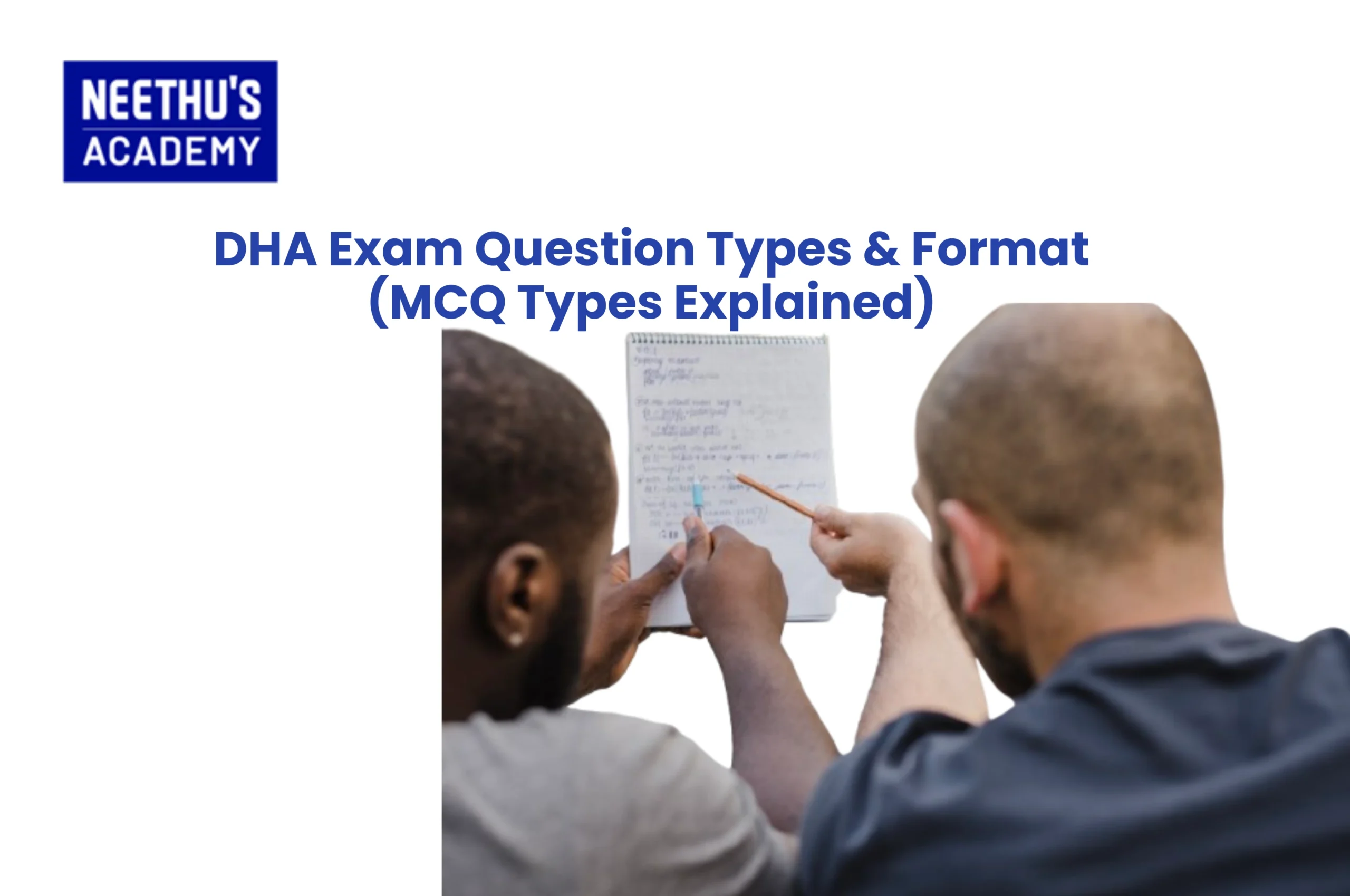The Occupational English Test is an entry pass for health care providers, including pharmacists, showing proof of proficiency in using English in…

OET Grammar Mistakes: How to Avoid Them in Writing & Speaking
The Occupational English Test (OET) has been developed to measure the English level of healthcare professionals in actual work situations. Vocabulary, tone, and style of communication are important aspects, yet OET grammar is still a determining factor for both OET Writing and OET Speaking. Examiners prefer to mark correctness, accuracy, and professionalism, and any minor OET grammar errors can reduce your mark. Whether you’re drafting a referral letter or interacting with a patient, avoiding grammar errors ensures your communication is effective, respectful, and easy to understand.
Common Mistakes in OET Writing
Writing tasks in OET often involve formal documents such as referral or discharge letters. Candidates are expected to use precise grammar to maintain professional standards. However, the following errors are frequently seen:
1. Incorrect verb tenses
Most of the candidates unnecessarily alternate between past and present tense. For example, “The patient is admitted yesterday” must be “The patient was admitted yesterday.”
2. Subject-verb disagreement
Mistakes like “The patient have pain” rather than “The patient has pain” are frequent but easily preventable.
3. Overuse of passive voice
Though passive voice is tolerable in medical writing, overuse can blur the lines of letters. For instance, “Pain was reported by the patient” is less straightforward than “The patient reported pain.”
4. Preposition errors
Incorrect use of the wrong preposition clouds meaning: “admitted in hospital” versus “admitted to hospital.”
5. Sentence fragments
Candidates tend to end sentences halfway through, particularly in summarising a patient’s history. Examiners anticipate full, clear sentences such as “The patient presented with chest pain” instead of “Presented with chest pain.”
OET Writing Grammar Hints
- Use formal, brief sentences.
- Double-check subject-verb concord carefully.
- Use the appropriate tense in describing medical history.
- Do not interweave informal everyday speech with professional style.
OET Speaking Common Mistakes
In the speaking sub-test, the candidates tend to make OET speaking grammar mistakes in attempting to stay fluent. The most common errors are:
1. Improper question formation
For instance, “You are having pain?” instead of “Are you having pain?”
2. Article misuse (a, an, the)
Leaving out articles, for instance, “Patient has fever” instead of “The patient has a fever.”
3. Modal verb issues
Saying “You must take rest” when “You should take rest” is more suitable for patient-centered communication.
4. Run-on sentences
Anxious candidates tend to put together several ideas without punctuation: “You need to take this medicine it will make you feel better and you have to drink water too.”
5. Shifting between formal and informal tones
Too informal phrases, such as “Hey, don’t worry, it’s cool” demote professionalism. Instead, say: “I understand your concern, and we will handle it carefully.”
Examples with Corrections
❌ “The patient have fever since two days.”
✅ “The patient has had a fever for two days.”
❌ “He is suffering from diabetes since five years.”
✅ “He has diabetes for the past five years.”
❌ “You need to drink more water, or you will get ill again.”
✅ “You need to drink more water to recover.”
❌ “Patient was admitted yesterday to hospital.”
✅ “The patient was admitted yesterday to the hospital.”
❌ “Are you currently taking any medicine?”
✅ “Are you currently taking any medicines?” (plural when naming various drugs)
These instances demonstrate how subtle changes in grammar enhance clarity, precision, and professionalism.
Strategies for Better Grammar
- Daily writing practice – Write short medical case reports or letters and proofread them using grammar-check devices.
- Recording and listening back – Listening to what you’ve said helps identify repetitive sentence structure mistakes.
- Concentrate on high-frequency errors – Focus closely on tense consistency, articles, and prepositions.
- Study model OET letters and transcripts – Take tips from how grammar is employed in high-scoring writing.
- Role-play with colleagues – Practice patient-doctor encounters to get used to speaking fluently without mistakes.
- Study sentence connectors – Connectors such as “however,” “therefore,” and “in addition” assist in crafting polished, professional sentences.
Tools/Resources for Grammar Practice
- Grammarly or QuillBot – To practice grammar in writing exercises.
- Cambridge English Grammar in Use – A good reference book highly suggested.
- Official OET Sample Tests – Practice grammar in context.
- BBC Learning English & British Council apps – Free apps to practice basics of grammar.
- Speech-to-text apps – Record your speaking exercises and review for grammar errors in transcripts.
Conclusion
Good grammar knowledge guarantees that your written and spoken communication is correct, clear, and professional. By avoiding grammar mistakes, following OET writing grammar tips, and eliminating common OET speaking mistakes, you enhance your score as well as prepare yourself for actual healthcare communication. It is accuracy, clarity, and compassion that lead to success in OET and in real life.
Frequently Asked Questions
Yes, regular grammar mistakes decrease your score since they influence clarity and professionalism.
The most important are tenses, articles, prepositions, and subject-verb agreement.
Practice frequent common errors, utilize grammar-check tools, and check your practice responses every day.
Both are, but grammar is necessary to convey vocabulary properly.
Related Blogs
- All Posts
- OET
- Back
- OET FOR PHYSIOTHERAPIST
- OET FOR PHARMACIST
- OET FOR DOCTORS
Among the several components of the OET, the Speaking sub-test is crucial and evaluates your proficiency not only in language but also…
Preparing for the Occupational English Test (OET) can be a game-changer for nurses aiming to advance their careers globally. At Neethu’s Academy,…
Course Enquiry
Latest Posts
- All Posts
- canada
- CBT
- DELF
- DHA
- French
- GENERAL
- German
- Haad
- IELTS
- IQN NEW ZEALAND
- MOH
- NCLEX-RN
- NHRA
- OET
- OSCE
- Pearson Vue
- PROMETRIC
- PTE
- TOEFL
- Back
- NCLEX - NGN
- Back
- OET FOR PHYSIOTHERAPIST
- OET FOR PHARMACIST
- OET FOR DOCTORS



